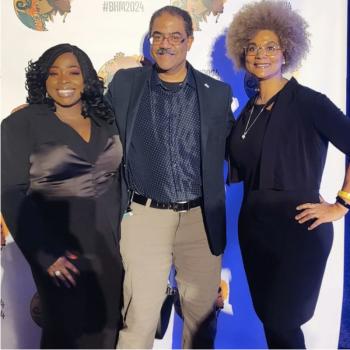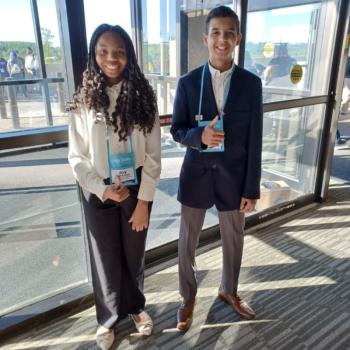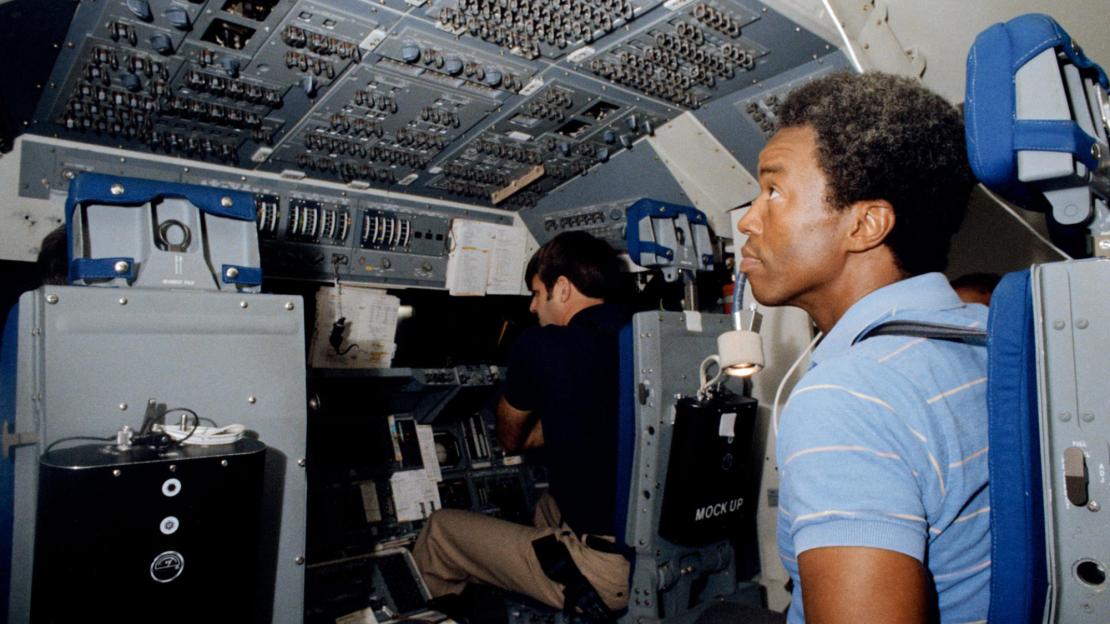It’s only been a few months since Maydianne Andrade first watched The Space Race, National Geographic’s documentary which spotlights the little-known stories of Black astronauts.
Andrade was preparing to participate in a post-screening panel. It’s one of the countless events she has been involved in to educate audiences about equity in STEMM as a leader in higher-education and co-founder of the Canadian Black Scientists Network (CBSN).
The documentary left a lasting impression. She’s seen the film twice and is left just as inspired each time. Now, together with partners across Canada, the CBSN will screen The Space Race as part of its Black History Month programming.
“A lot of Black communities, including scientists, value the arts and humanities. It’s critical to engage through the arts to help people not just learn about statistics but feel it,” says Andrade, an evolutionary ecologist in the department of biological sciences at the University of Toronto Scarborough and BRN steering committee member.
The free virtual and in-person event series takes off this weekend at Dalhousie University and will be hosted at the University of Toronto Scarborough on February 21. A discussion with Andrade and Rene Harrison, also a professor of biological sciences at U of T Scarborough, will follow to discuss the film’s themes in the current context.
Most importantly, the event series allows audiences to learn about a time in history many may not know about, Andrade says.

The Space Race rewrites the history of America’s ventures into space through interviews with pioneers of NASA’s space program – the first Black pilots, engineers, and scientists in their journey to become astronauts. Starting in the 1960s civil rights era, the film leads up to the 2020 murder of George Floyd and the racial reckoning that followed.
It includes the story of Ed Dwight, an Air Force pilot who would have become the first Black astronaut when he was chosen by President John F. Kennedy to join a pilot program at the Edwards Air Force Base. His hopes came to a halt after Kennedy’s assassination when he wasn’t selected for the NASA program.
In 1983, two decades later, Guion “Guy” Bluford became the first African American astronaut.
The film not only inspires discussions around interviews but also highlights events in history that can speak to equity in Canada’s STEMM landscape, such as better supporting Black and Indigenous students who are largely affected by academic streaming.
“We have data in Canada that shows Black youth are streamed out of STEMM programs. The issues are still current,” Andrade says. “We want to shine a light on things that still need to be fixed and have those conversations.”
Shaping the future of STEMM
Doing its part to change the future for Black professionals in STEMM is at the core of the CBSN’s mission. Launched in 2020, the CBSN is a national coalition of over 700 members that works to elevate, connect, and celebrate Black Canadians pursuing advanced degrees in STEMM.

The CBSN advocates for equitable practices in funding and works to enhance the visibility of Black researchers in the field and increase retention of Black youth in STEMM. Notably, the CBSN provides mentorship for youth and opportunities to realize a career in STEMM through its Youth Science Fair.
The film screenings will mark the launch of the CBSN’s Regional Nodes, associations of CBSN members and allies across Canada who support local programming and outreach. Regional Nodes are currently located in British Columbia, Saskatchewan, Ontario, and Quebec, with connections in Atlantic Canada through local partners.
The CBSN Regional Nodes Program is a vital branch of the network to support youth and researchers seeking resources to advance their careers. Their role in fostering community connections makes the film screening a perfect way to get started.
“This is a beautiful, artistic film that gives people a sense of the actual emotions involved in what we’re fighting for. It’s about community and support,” Andrade says.
“I want people to understand the joy involved and how much we want to participate in these fields.”
This story originally appeared on the Black Research Network website
